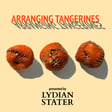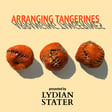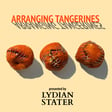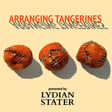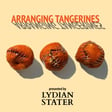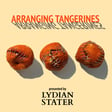
Arranging Tangerines Episode 30 - A Conversation with Anika Todd "The Return"
In this week’s episode, we welcome back Anika Todd, our inaugural guest on the podcast. As we talk about what Anika has been up to for the last year, we discuss teaching, the ethical concerns of sunlight access, the transferable nature of air rights in NYC, how a nomadic lifestyle helps emphasize incongruities, balloonery, space travel with a lower case ’s’, and the pros and cons of documentation when it comes to conceptual artwork.
Anika Todd (b.1992, Boston, MA) received her BFA from Massachusetts College of Art and Design, and her MFA from The University of Texas at Austin. Todd is a sculptor/media artist investigating landscape and ownership; Todd’s work functions through acts of trespass -- simultaneously enacting and challenging systems that oppress, compartmentalize, and own in order to control. She has created site-specific installations in the US and abroad. Her work has been presented in solo exhibitions at VisArts Center, Richmond, VA and Co-Lab Gallery, Austin, TX featured in the Washington Post (2018) and Glasstire (2019) respectively. She was the recipient of a City of Austin Cultural Art Council Award (2019) and the Godine Travel Award (2017). She has been selected to participate in numerous residencies including Salem Art Works (2017), Haystack School of Craft and Design (2018), and Skowhegan School of Painting and Sculpture (2019).
